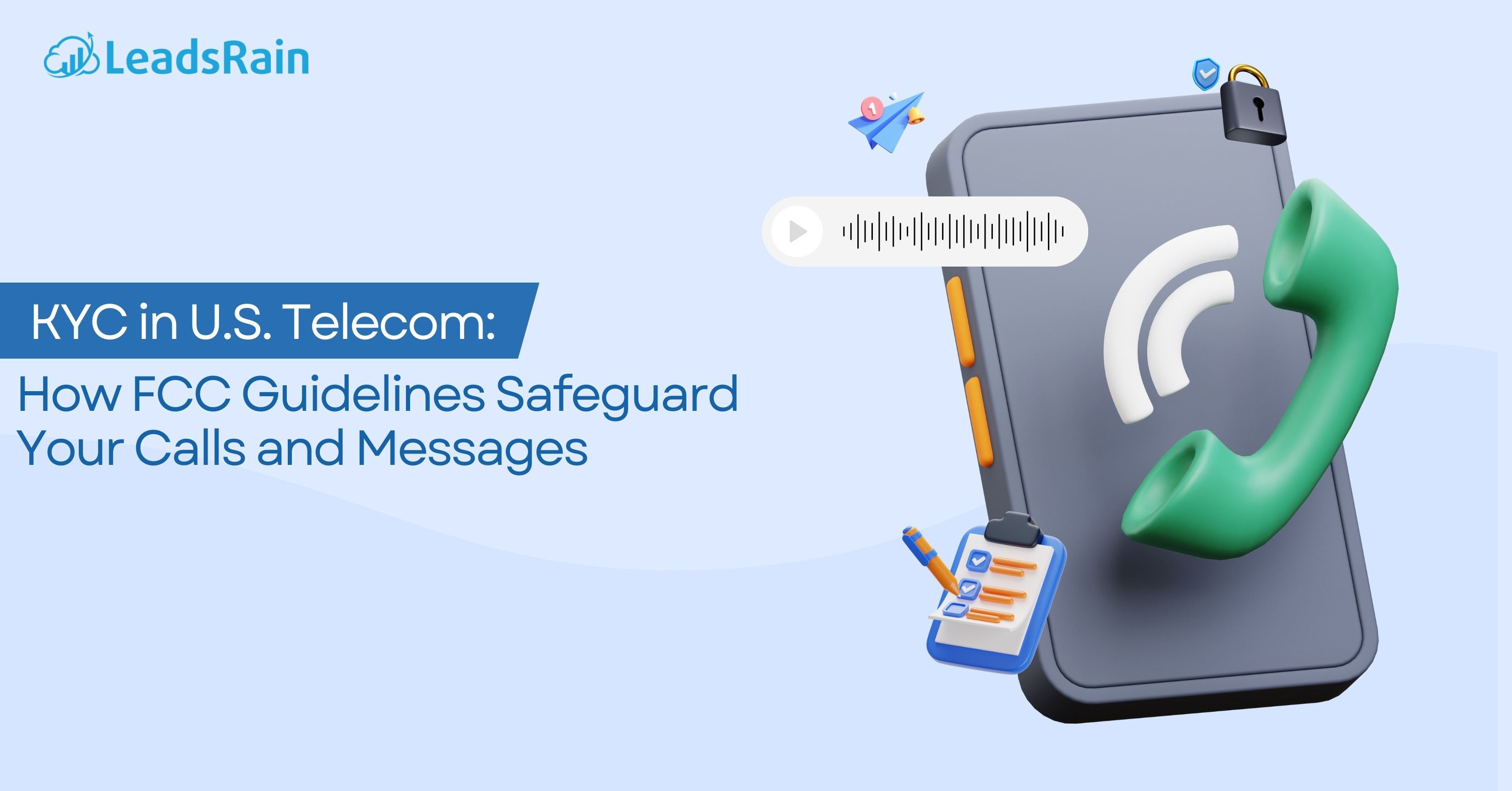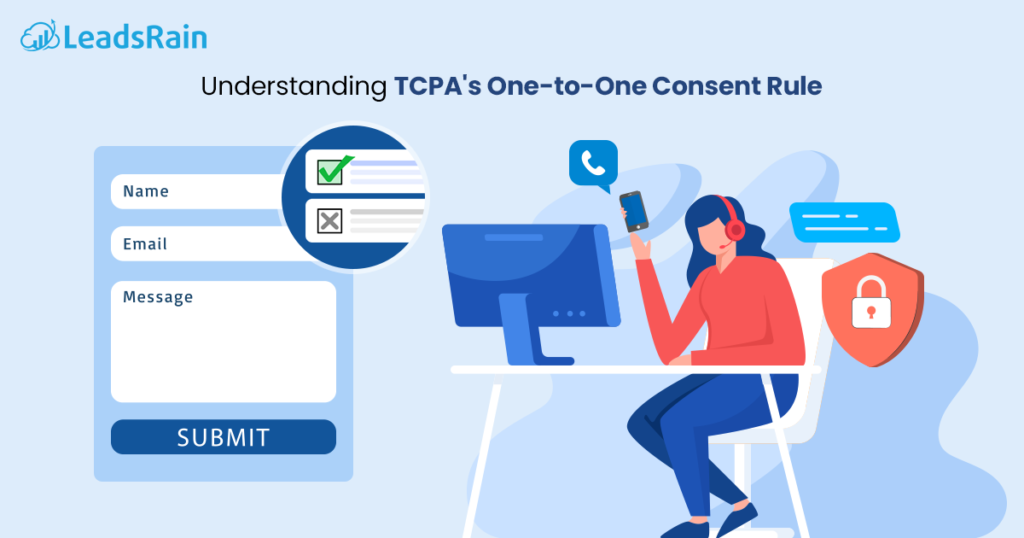The U.S. telecom industry is undergoing a major shift, with the Federal Communications Commission (FCC) tightening compliance measures to ensure trust, transparency, and security across all communication channels. One of the most significant steps in this direction is the increased focus on Know Your Customer (KYC).
For years, KYC has been essential in banking and financial services to prevent fraud and money laundering. Now, the FCC is making it a central requirement for telecom providers—impacting everything from mobile carriers and VoIP services to messaging platforms and call centers.
But why is KYC becoming such a priority? And how does it benefit not only telecom companies but also the customers they serve?
What is KYC in the Telecom Industry?
In the telecom context, KYC refers to the process of verifying the identity of customers before providing them with communication services. This includes collecting and validating information such as:
- Name and Address (proof of identity and residence)
- Government-issued ID numbers (e.g., driver’s license, passport, or Social Security Number)
- Business registration details (for corporate customers)
The FCC’s push for KYC compliance ensures that telecom providers can identify legitimate users and detect suspicious or fraudulent activity before it becomes a threat.
Why is the FCC Making KYC a Priority?
The FCC’s heightened focus on KYC stems from growing challenges in the telecom space, including:
1. Curbing Spam, Scam, and Fraudulent Calls
The U.S. has seen a sharp increase in robocalls, spoofed numbers, and phishing attempts. By enforcing stricter KYC, the FCC aims to make it harder for fraudsters to obtain phone numbers or messaging accounts under false identities.
2. Supporting STIR/SHAKEN Compliance
The STIR/SHAKEN framework is designed to authenticate caller ID information and reduce spoofing. KYC plays a foundational role in ensuring that the caller information being verified is tied to a real, validated identity.
3. Strengthening National Security
Telecom infrastructure is critical for national communication and emergency response systems. KYC ensures that access to telecom services is granted only to verified individuals and organizations.
4. Protecting Consumers from Identity Theft
By confirming the identity of every telecom customer, KYC helps prevent the misuse of stolen personal information to open accounts or initiate fraudulent services.
How KYC Benefits Telecom Customers?
KYC in telecom isn’t just about regulation—it’s also about customer protection. Here’s how it works in your favor:
- Fewer Scam Calls and Messages – With verified identities, fraudsters have a harder time infiltrating networks.
- Greater Trust in Communications – You can be more confident that the call or message you’re receiving is from a legitimate source.
- Better Service Experience – Verified accounts mean fewer service interruptions caused by suspicious activity flags.
What Happens When KYC is Skipped?
Skipping KYC may sound like a shortcut for businesses eager to get their telecom services up and running, but it can expose them to serious risks. The FCC has already issued multi-million-dollar penalties against carriers for failing to verify new customers, and businesses that operate through these carriers can get caught in the fallout.
When your provider does not perform proper KYC, you risk being flagged as a bad actor—even if your business is legitimate. Calls may be blocked, your numbers could be blacklisted, and your entire operation might face shutdown or investigation. Customers and partners lose trust quickly when your communications are tied to fraud or spam complaints.
Real-world enforcement shows the danger clearly:
- Massive fines and investigations: The FCC levied a $4.5 million fine after a customer made thousands of robocalls in a single day because KYC was skipped. Any business using that provider’s services would have been swept into the same scrutiny.
- Service disruptions and stricter monitoring: In another case linked to STIR/SHAKEN compliance, a carrier faced a $1 million penalty and was forced to impose stricter verification rules. Businesses working through them saw onboarding delays, added checks, and potential interruptions in service.
- Reputation damage: If your telecom partner is known for poor KYC, your business can be associated with spam activity, damaging your brand and making future campaigns harder to run.
KYC isn’t just a regulatory box for carriers—it’s a protection layer for businesses that depend on telecom. Working with a provider that takes KYC seriously means your numbers stay clean, your campaigns remain compliant, and your reputation stays intact.
KYC Compliance Requirements for Businesses Using Telecom Services
Businesses that rely on telecom platforms must understand that KYC is not just a provider’s responsibility—it directly affects how their accounts are approved and maintained. Completing proper verification ensures that communication channels remain secure, compliant, and less vulnerable to fraud-related disruptions.
KYC compliance also protects businesses from reputational and financial risks. Inaccurate or incomplete records can lead to account suspension, service delays, or even penalties if communications are flagged as suspicious under federal regulations.
Key Requirements for Businesses:
- Valid business registration documents – Proof of incorporation, business license, or tax registration.
- Authorized signatory verification – Government-issued ID of the person opening or managing the telecom account.
- Proof of business address – Utility bill, lease agreement, or other official documentation.
- Clear service use case – Explanation of how telecom services (VoIP, SMS, call campaigns) will be used to avoid compliance concerns.
- Ongoing updates – Promptly provide updated documents of ownership, address, or business details change.
Challenges Telecom Providers Face in Implementing KYC
While the benefits are clear, telecom providers do face hurdles in meeting FCC KYC requirements:
- Balancing Security and Customer Experience – Collecting verification documents must be done without creating unnecessary friction for customers.
- Data Privacy Concerns – Sensitive information must be stored and transmitted securely to comply with both FCC and data protection laws.
- Integration with Existing Systems – Legacy telecom systems may require upgrades to handle KYC workflows efficiently.
Why Should You Co-operate with Your Telecom Service Provider on KYC?
KYC may feel like extra paperwork, but cooperating with your provider ensures your business communications run smoothly without interruptions. Proper verification protects your phone numbers from being flagged as spam, helps avoid unwanted call blocking, and keeps your campaigns compliant with FCC rules.
By completing KYC quickly and accurately, you also build trust with your provider. This trust often translates into faster onboarding, fewer disruptions, and access to higher-quality telecom routes—so your calls and messages actually reach the people you’re trying to serve.
Final Thoughts
The FCC’s focus on KYC in telecom is not just a bureaucratic requirement—it’s a vital step toward a safer, more trustworthy communication ecosystem. Whether you’re a telecom provider or a customer, stronger identity verification means more secure calls, fewer scams, and a better overall experience.
As the industry continues to evolve, one thing is clear: KYC will be a cornerstone of U.S. telecom security and trust for years to come.




